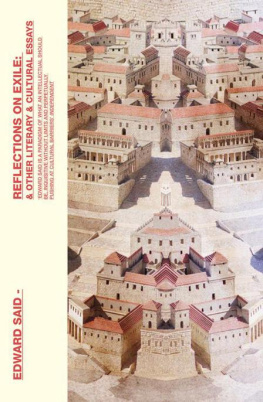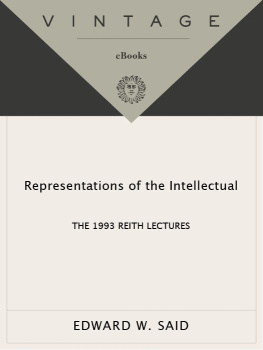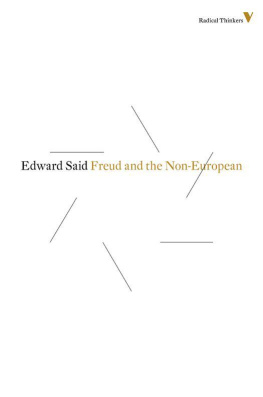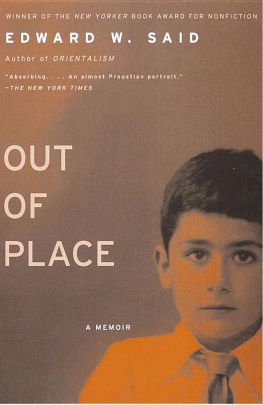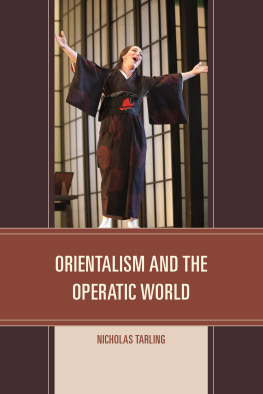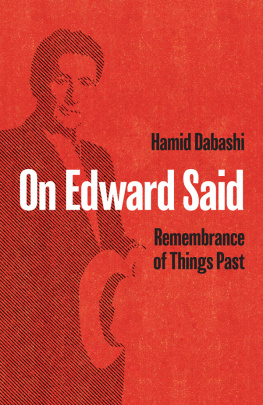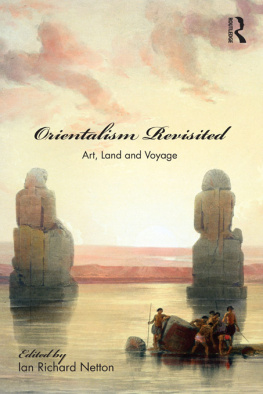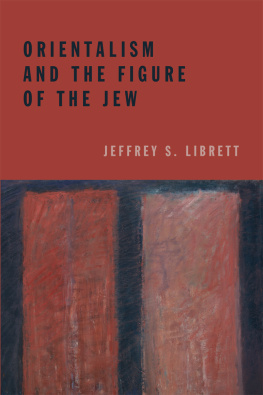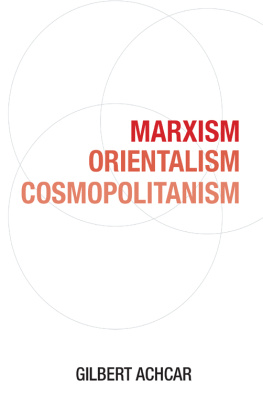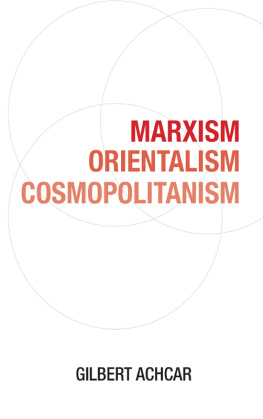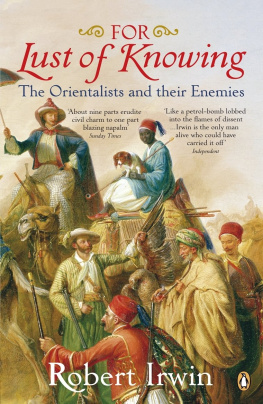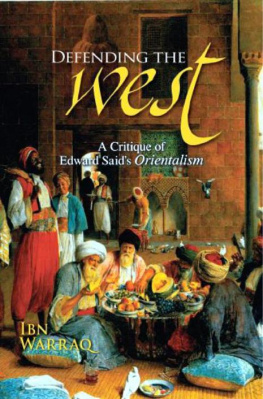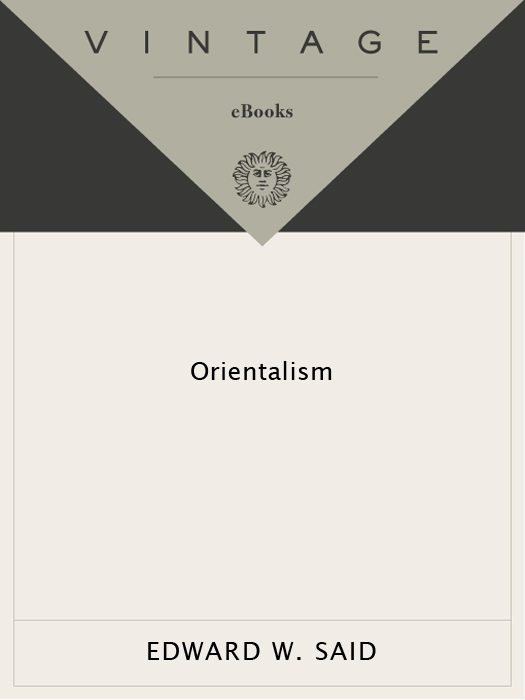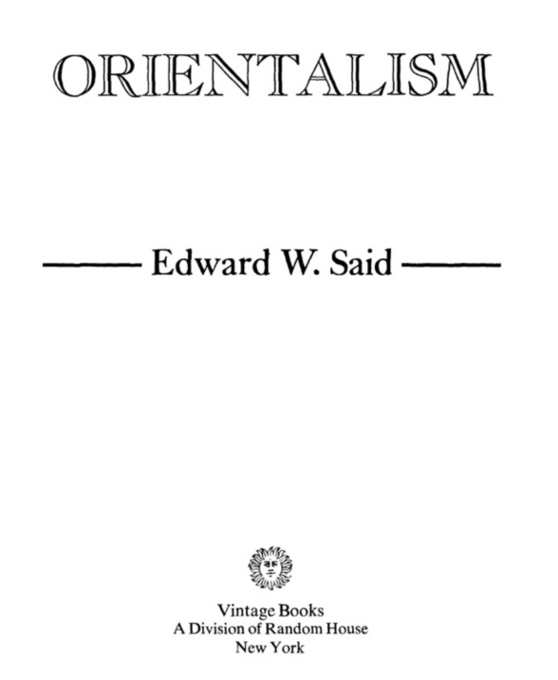Vintage Books Edition, October 1979
Copyright 1978 by Edward W. Said
Afterword copyright 1994 by Edward W. Said
All rights reserved under International and Pan-American Copyright Conventions. Published in the United States of America by Random House, Inc., New York, and in Canada by Random House of Canada Limited, Toronto. Originally published by Pantheon Books, A Division of Random House, Inc., in November 1978.
Library of Congress Cataloging in Publication Data
Said, Edward W
Orientalism.
Includes bibliographical references.
1. AsiaForeign opinion, Occidental. 2. Near EastForeign opinion, Occidental. 3. AsiaStudy and teaching. 4. Near EastStudy and teaching. 5. Imperialism. 6. East and West. I. Title.
DS12.S24 1979 950.072 79-10497
ISBN 0-394-74067-X
eBook ISBN: 978-0-8041-5386-7
Since this copyright page cannot accommodate all the permissions acknowledgments, they are to be found on the following two pages.
v3.1
Grateful acknowledgment is made to the following for permission to reprint previously published material:
George Allen & Unwin, Ltd.: Excerpts from Subjects of the Day: Being a Selection of Speeches and Writings by George Nathaniel Curzon.
George Allen & Unwin, Ltd.: Excerpts from Revolution in the Middle East and Other Case Studies, proceedings of a seminar, edited by P. J. Vatikiotis.
American Jewish Committee: Excerpts from The Return of Islam by Bernard Lewis, in Commentary, vol. 61, no. 1 (January 1976). Reprinted from Commentary by permission. Copyright 1976 by the American Jewish Committee.
Basic Books, Inc.: Excerpts from Renans Philological Laboratory by Edward W. Said, in Art, Politics, and Will: Essays in Honor of Lionel Trilling, edited by Quentin Anderson et al. Copyright 1977 by Basic Books, Inc.
The Bodley Head and McIntosh & Otis, Inc.: Excerpts from Flaubert in Egypt, translated and edited by Francis Steegmuller. Reprinted by permission of Francis Steegmuller and The Bodley Head.
Jonathan Cape, Ltd., and The Letters of T. E. Lawrence Trust: Excerpt from The Letters of T. E. Lawrence, edited by David Garnett.
Jonathan Cape, Ltd., The Seven Pillars Trust, and Doubleday & Co., Inc.: Excerpt from The Seven Pillars of Wisdom: A Triumph by T. E. Lawrence. Copyright 1926, 1935 by Doubleday & Co., Inc.
Doubleday & Co., Inc., and A. P. Watt & Sons, Ltd.: Excerpt from Verse by Rudyard Kipling.
The Georgia Review: Excerpts from Orientalism, which originally appeared in The Georgia Review (Spring 1977). Copyright 1977 by the University of Georgia.
Harper & Row, Publishers, Inc.: Excerpt from a poem by Bornier (1862), quoted in De Lesseps of Suez by Charles Beatty.
Macmillan & Co., London and Basingstoke: Excerpts from Modern Egypt, vol. 2, by Evelyn Baring, Lord Cromer.
Macmillan Publishing Co., Inc.: Excerpt from Propaganda by Harold Lasswell, in The Encyclopedia of the Social Sciences, edited by Edwin R. A. Seligman, vol. 12 (1934).
Macmillan Publishing Co., Inc., and A. P. Watt & Sons, Ltd.: Excerpt from Byzantium by William Butler Yeats, in The Collected Poems. Copyright 1933 by Macmillan Publishing Co., Inc., renewed 1961 by Bertha Georgie Yeats.
The New York Times Company: Excerpts from Arabs, Islam, and the Dogmas of the West by Edward W. Said, in The New York Times Book Review, October 31, 1976. Copyright 1976 by The New York Times Company. Reprinted by permission.
Northwestern University Press: Excerpt from The Arab Portrayed by Edward W. Said, in The Arab-Israeli Confrontation of June 1967: An Arab Perspective, edited by Ibrahim Abu-Lughod. Copyright 1970 by Northwestern University Press.
Prentice-Hall, Inc.: Excerpt from The Persians by Aeschylus, translated by Anthony J. Podleck. Copyright 1970 by Prentice-Hall, Inc.
The Royal Asiatic Society, Great Britain and Ireland: Excerpt from Louis Massignon (18821962), in Journal of the Royal Asiatic Society (1962).
University of California Press: Excerpts from Modern Islam: The Search for Cultural Identity by Gustave von Grunebaum. Copyright 1962 by the Regents of the University of California.
University of Chicago Press: Excerpts from Modern Trends in Islam by H. A. R. Gibb.
FOR JANET AND IBRAHIM
Contents
Acknowledgments
I have been reading about Orientalism for a number of years, but most of this book was written during 19751976, which I spent as a Fellow at the Center for Advanced Study in the Behavioral Sciences, Stanford, California. In this unique and generous institution, it was my good fortune not only to have benefitted agreeably from several colleagues, but also from the help of Joan Warmbrunn, Chris Hoth, Jane Kielsmeier, Preston Cutler, and the centers director, Gardner Lindzey. The list of friends, colleagues, and students who read, or listened to, parts or the whole of this manuscript is so long as to embarrass me, and now that it has finally appeared as a book, perhaps even them. Nevertheless I should mention with gratitude the always helpful encouragement of Janet and Ibrahim Abu-Lughod, Noam Chomsky, and Roger Owen, who followed this project from its beginning to its conclusion. Likewise I must gratefully acknowledge the helpful and critical interest of the colleagues, friends, and students in various places whose questions and discussion sharpened the text considerably. Andr Schiffrin and Jeanne Morton of Pantheon Books were ideal publisher and copy editor, respectively, and made the ordeal (for the author, at least) of preparing the manuscript an instructive and genuinely intelligent process. Mariam Said helped me a great deal with her research on the early modern history of Orientalist institutions. Apart from that, though, her loving support really made much of the work on this book not only enjoyable but possible.
E. W. S.
New York
SeptemberOctober 1977
They cannot represent themselves; they must be represented.
Karl Marx, The Eighteenth Brumaire of Louis Bonaparte
The East is a career.
Benjamin Disraeli, Tancred
Preface to the Twenty-Fifth Anniversary Edition
Nine years ago, in the spring of 1994, I wrote an afterword for Orientalism, which, in trying to clarify what I believed I had and had not said, I stressed not only the many discussions that had opened up since my book appeared in 1978, but also the ways in which a work about representations of the Orient lends itself to increasing misrepresentation and misinterpretation. That I find the very same thing today more ironic than irritating is a sign of how much my age has crept up on me, along with the necessary diminutions in expectations and pedagogic zeal that usually frame the road to seniority. The recent deaths of my two main intellectual, political, and personal mentors, Eqbal Ahmad and Ibrahim Abu-Lughod (who is one of the works dedicatees) have brought sadness and loss, as well as resignation and a certain stubborn will to go on. It isnt at all a matter of being optimistic, but rather of continuing to have faith in the ongoing and literally unending process of emancipation and enlightenment that, in my opinion, frames and gives direction to the intellectual vocation.


